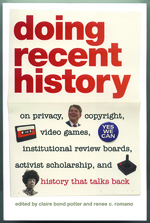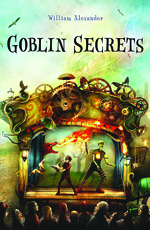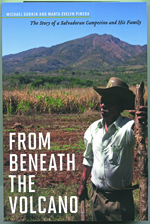Oberlin Alumni Magazine
Summer 2012 Vol. 107 No. 3
Bookshelf

Are You My Mother?
It's hard to remember that before blogging put diaries in the public domain, uncomfortable family truths were embedded in long-form memoirs and available only to those who read the book (or, in cases like Mommie Dearest, watched the movie). One notable exception has been the comic strip of Alison Bechdel, whose personal life unfolded in the panels of her alternative newspaper comic strip, Dykes to Watch Out For. More recently, Bechdel expanded the strip to book length, producing a pair of graphic memoirs that delve into family relations — the first about her (closeted gay, suicide-committing) father, and this one about her mother. Like her first book, Are You My Mother? is being lauded for bringing something serious to comic form. "If one is at first glance tempted to dismiss [the book] as a glorified comic strip, one would be wildly and woefully misguided: it is as complicated, brainy, inventive and satisfying as the finest prose memoirs," wrote Katie Roiphe in the New York Times Book Review.

Creating a New Racial Order: How Immigration, Multiracialism, Genomics, and the Young Can Remake Race in America
While the four titular remakers of race in America get equal time in this book, cowritten by Harvard professor Hochschild, the final one — the young — is the one in which the authors place the most hope "for a better racial future." That future involves fluidity in definitions and perspectives that will transform how we see race, while not making America "postracial." Though extensively endnoted and replete with graphs, the read is far from academic.
Read an article about Michael Dirda '70 written by Michael Dirda '09.

Doing Recent History: On Privacy, Copyright, Video Games, Institutional Review Boards, Activist Scholarship, and History That Talks Back
The idea of doing history while it is —in Romano's cheeky, Monty-Pythonesque chapter title — "not dead yet," presents very specific challenges to historians. The dozen essays collected here address those challenges from a variety of perspectives. The editors found there to be not much written regarding recent history, which means their efforts match the history they're trying to tell: trails in the midst of being blazed.

Goblin Secrets
This children's book (ages 9-13) treads familiar fantasy ground up to a point: a parentless child, Rownie, navigating a bewildering landscape inhabited by witches and goblins. And then things get a little steampunk and weird. For instance, the witch has gearwork chicken legs. The world Alexander creates, says Kirkus Reviews, "is wryly humorous and bearably yet excitingly menacing: Even while much is left unexplained, Rownie's triumph is both gripping and tantalizing."

From Beneath the Volcano: The Story of a Salvadoran Campesino and His Family
This oral history of Luis Campos and his family shows how individuals get gathered into the sweep of history, but also how they try to take control of it and their own destinies. Campos was a Salvadoran farmer-turned-guerrilla when civil war broke out in El Salvador in 1980. The book tells the story of the time before and during the war, and the 18 years since, during which Campos and his family have tried to build new lives in a new community.
